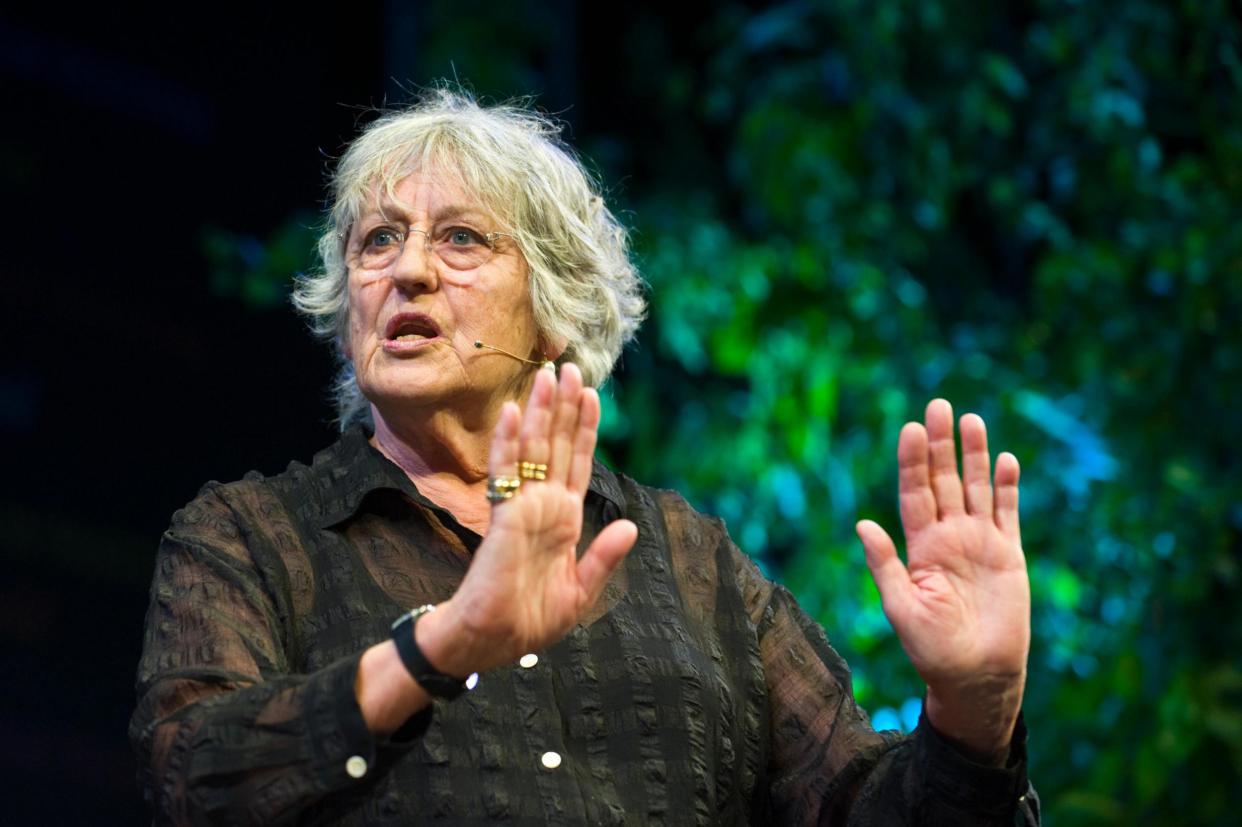Germaine Greer compared the trauma of rape victims to her fear of spiders. What is she playing at?

When Jill Saward was raped in 1986, the judge presiding over the case handed her attackers longer sentences for the burglary they’d been committing at the time. His justification for this was that Saward’s trauma “had not been so great”.
The outcry this provoked led to changes in UK law, providing greater anonymity for rape victims and allowing prosecutors to appeal for longer sentences. Fast forward thirty years and you’d hope we were way beyond a time when anyone might dare to suggest that being raped by a stranger can’t be all that bad.
Alas, it appears we’re not. What’s even worse is, we don’t just have judges making these calls – they’re coming from feminists themselves.
Right now, there’s one feminist in particular who’s been responsible for this: Germaine Greer. In an interview for Australia’s public broadcaster to mark the publication of her essay On Rape, Greer said that while she was not suggesting rape was not damaging, “trauma is something that is dictated by the sufferer”: “I can’t bear huntsman spiders. It’s not their fault. It’s interesting to me that women are encouraged all the time to be terribly, terribly frightened, and nearly always of the wrong thing.”
Obviously this has led to a slew of suitably appalled headlines: “Germaine Greer accused of likening rape trauma to fear of spiders!” “Germaine Greer, once again, puts her foot in it!” It’s hard not to see such responses as opportunistic – disagree with Greer and you’re discrediting a feminist, agree with her and you’re discrediting a rape victim’s trauma – but her comments are hard to ignore. In a world where women still struggle to gain recognition for their pain, what is she playing at?
It’s not the first time a feminist has been seen to downplay the effects of sexual assault. In the 1990s we had Katie Roiphe, who used her book The Morning After to argue that college protests over date rape amounted to a form of hysteria, positioning women as eternally weak and helpless. In 2009’s The Noughtie Girl’s Guide To Feminism, Ellie Levenson proposed that “we do women an injustice when we say that rape is the worst thing that can happen to a woman. It is, after all, just a penis.”
What Greer is saying now is not so different to what others have said about the risk of disempowering women through fear. I understand the argument. Is there a danger, particularly in the #MeToo age, of making women overly focused on what men achieve when they commit sexual assault? If rape is about sex and not power, can we not take that power back by saying “no, what you did cannot change me”?
It’s a tempting thought, but one which I think perpetuates rather than diminishes trauma. Yes, we can brush ourselves down and get on with life. Given that the vast majority of sexual assaults go unpunished, this is after all what most of us have been doing.
But to argue that we “dictate” our own trauma by creating narratives which enable it overlooks the way in which placing this trauma in a political context becomes a way of confronting those who wish us harm. When I was assaulted as a student in 2002, I told myself what occurred was totally random, which also made me more afraid it could happen again.
It was only years later, through feminism, that I came to understand the structures supporting male violence and sexual entitlement. Sexual assault is not inevitable. It does not happen for no reason. When assaults do occur, we should not have to try to persuade ourselves they don't affect us.
What hurts, hurts. Telling yourself “but I do not see myself as a damaged person” is fine. Nor do I. But there is a difference between fetishising pain and demanding the world takes account of it and changes accordingly.
That is what Saward, who devoted her brief life to campaigning for other victims of sexual assault, chose to do. Her pain was not nothing. By refusing to allow it to be dismissed, she didn’t wallow in fear, but showed enormous strength. It’s not trauma that is dictated by the sufferer, but what he or she chooses to do with it next.

 Yahoo News
Yahoo News 
